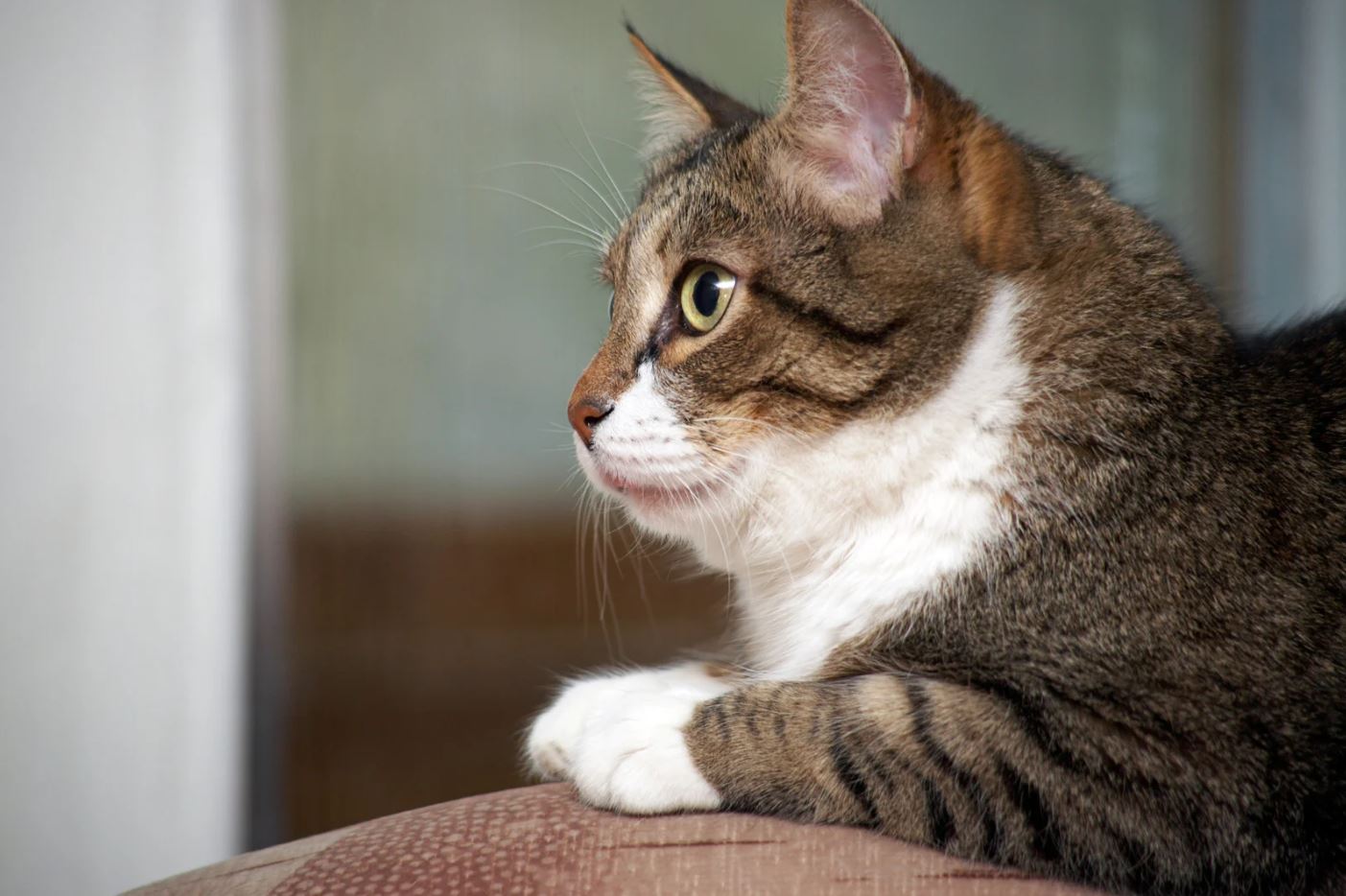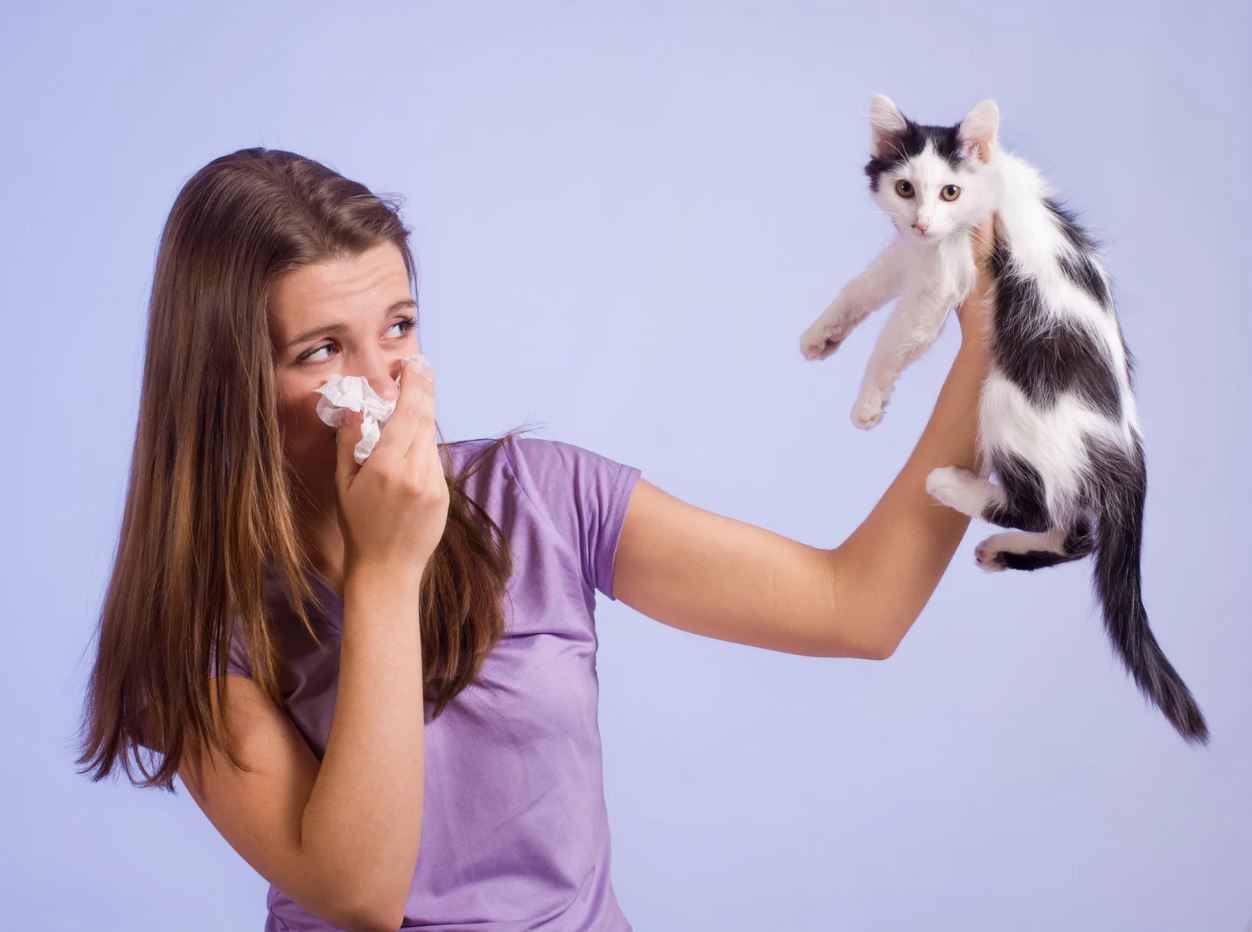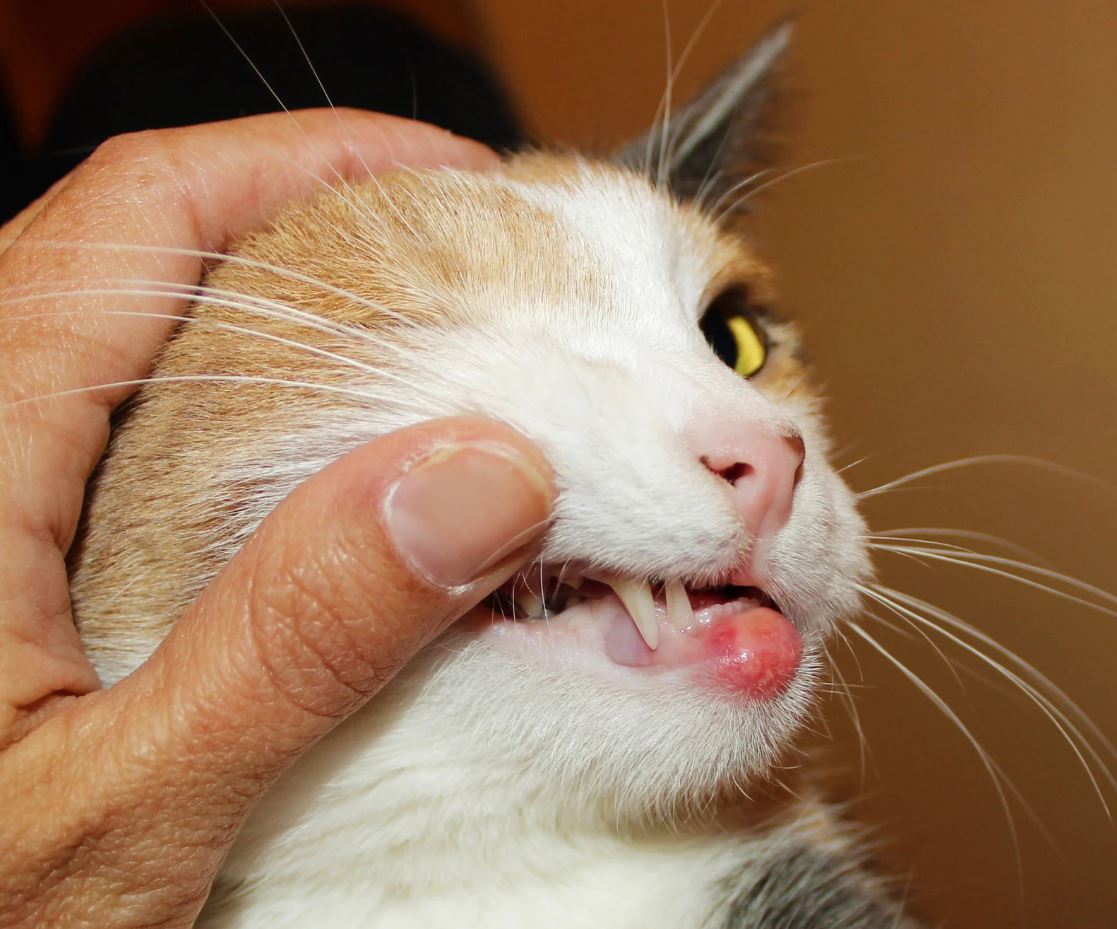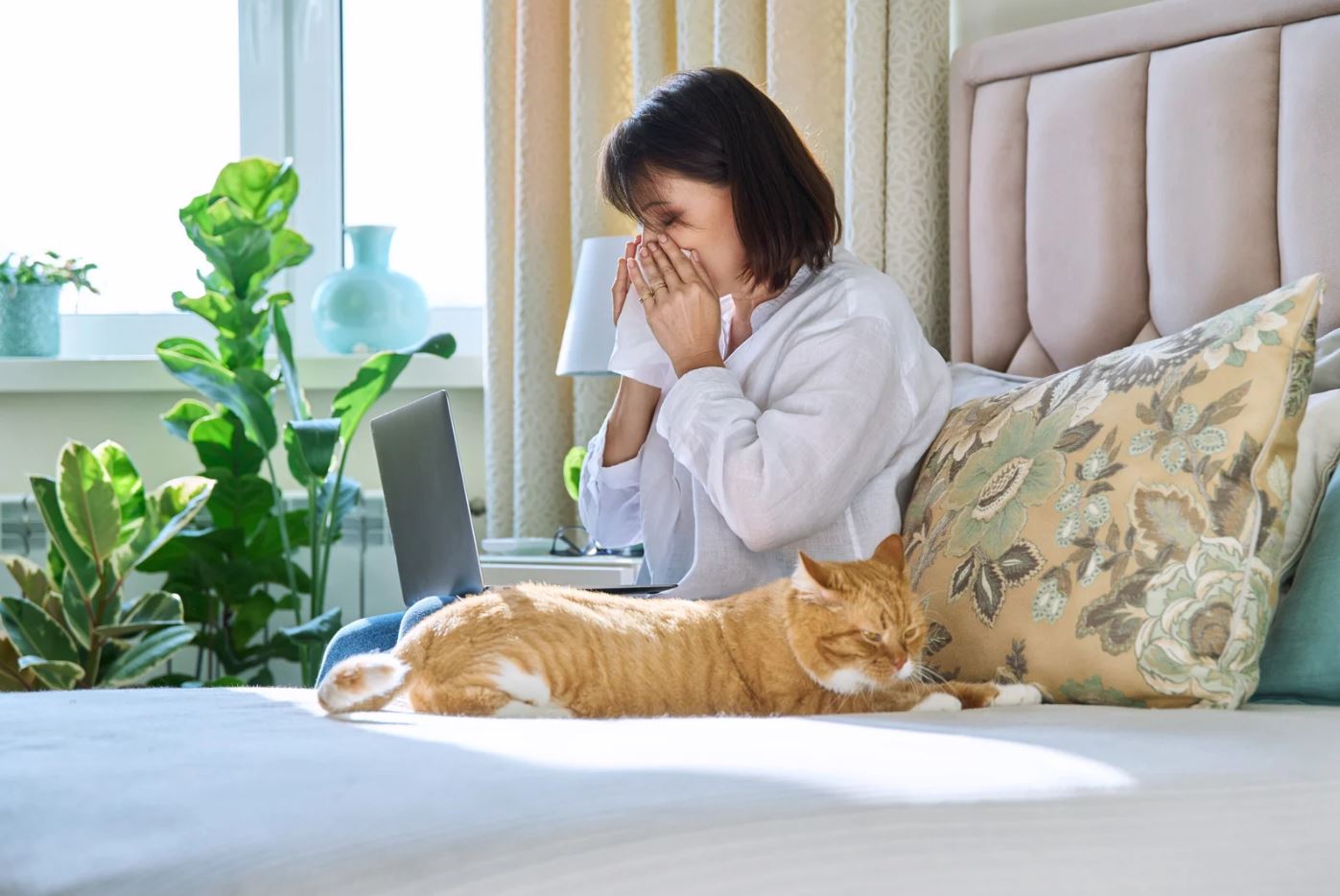
As your feline friend ages, you may notice some changes in their health and behavior. One of the more common issues that can arise in senior cats is allergies. Just like humans, cats can develop sensitivities to various substances over time.
Allergies in senior cats can manifest in several ways, including skin irritations, excessive scratching, and gastrointestinal upset. Understanding these allergies is crucial for ensuring your beloved pet remains comfortable and healthy in their golden years. Senior cats may experience allergies due to a combination of factors, including environmental changes, dietary shifts, and even a weakened immune system.
It’s essential to pay attention to any changes in your cat’s behavior or health, as these could be signs of an allergy that needs addressing. By being proactive and informed, you can help your senior cat live a happier, healthier life.
Key Takeaways
- Senior cats can develop allergies just like younger cats, but their symptoms may be more subtle and harder to detect.
- Common allergens for senior cats include certain proteins, grains, and artificial additives in their food.
- A hypoallergenic diet with limited ingredients can be the best choice for senior cats with allergies.
- High-quality protein sources like fish, turkey, and duck can be beneficial for senior cats with allergies.
- Avoiding common allergens in senior cat food, such as corn, wheat, and soy, can help alleviate allergy symptoms.
Identifying Common Allergens for Senior Cats
Food Allergies in Senior Cats
Food allergies are particularly prevalent in older cats, with proteins like chicken, beef, and fish often being the culprits.
Environmental Allergens
Environmental allergens such as pollen, dust mites, and mold can also trigger reactions, especially if your cat spends time outdoors or in areas with poor air quality.
Pinpointing the Source of Allergies
To pinpoint the source of your cat’s allergies, start by observing their symptoms closely. Are they scratching more than usual? Is there excessive grooming or hair loss? These signs can indicate an allergic reaction. Keeping a journal of your cat’s diet and environment can help you identify patterns and potential triggers. If you suspect food allergies, consider an elimination diet under the guidance of your veterinarian to determine which ingredients may be causing the issue.
Choosing the Best Diet for Senior Cats with Allergies

When it comes to managing allergies in senior cats, diet plays a pivotal role. Choosing the right food can help alleviate symptoms and improve your cat’s overall well-being. Look for high-quality cat food that is specifically formulated for senior cats and free from common allergens.
Grain-free options are often beneficial, as many cats develop sensitivities to grains like wheat and corn as they age. Additionally, consider foods that contain limited ingredients. These diets typically have fewer components, making it easier to identify potential allergens.
When selecting a diet for your senior cat with allergies, always read the ingredient list carefully. Avoid foods with artificial additives or fillers, as these can exacerbate allergic reactions.
Protein Sources for Senior Cats with Allergies
Protein is an essential part of any cat’s diet, but for senior cats with allergies, choosing the right protein source is crucial. Some cats may be allergic to common proteins like chicken or beef, so exploring alternative protein sources is a smart move. Options such as turkey, lamb, or even novel proteins like duck or venison can be excellent choices for cats with sensitivities.
When introducing new protein sources into your senior cat’s diet, do so gradually to avoid gastrointestinal upset. Start by mixing a small amount of the new protein with their current food and gradually increase the proportion over several days. This slow transition allows your cat’s digestive system to adjust and helps you monitor for any adverse reactions.
Remember that every cat is unique; what works for one may not work for another, so patience is key.
Avoiding Common Allergens in Senior Cat Food
To effectively manage allergies in senior cats, it’s essential to avoid common allergens in their food. As mentioned earlier, ingredients like chicken, beef, dairy, and grains can trigger allergic reactions in some cats. When shopping for cat food, look for products labeled as hypoallergenic or specifically designed for sensitive stomachs.
Additionally, consider preparing homemade meals for your senior cat if you’re comfortable doing so. This way, you have complete control over the ingredients and can tailor the diet to avoid known allergens. Just be sure to consult with your veterinarian or a pet nutritionist to ensure that your homemade meals are nutritionally balanced and meet your cat’s dietary needs.
Special Considerations for Senior Cats with Allergies

Environmental Allergens
Maintaining a clean living environment is essential for your senior cat’s health. Regularly vacuuming and dusting can help reduce exposure to environmental allergens like dust mites and pollen. If your cat has outdoor access, consider limiting their time outside during high pollen seasons or when the air quality is poor.
Creating a Safe Space
Creating a safe and comfortable space for your senior cat can significantly improve their quality of life. By taking these extra steps, you can help reduce your cat’s exposure to allergens and provide them with a happy and healthy living environment.
Proactive Care
Proactive care is key to managing your senior cat’s allergies. By working closely with your vet and taking steps to reduce environmental allergens, you can help your cat live a happy and healthy life.
Consulting with a Veterinarian for Senior Cat Allergies

When it comes to managing allergies in senior cats, consulting with a veterinarian is crucial. Your vet can perform tests to identify specific allergens and recommend appropriate treatments or dietary changes based on your cat’s individual needs. They may suggest allergy testing or even prescribe medications to alleviate symptoms if necessary.
Don’t hesitate to share any observations you’ve made about your cat’s behavior or health changes with your veterinarian. The more information you provide, the better equipped they will be to help you find effective solutions for managing your senior cat’s allergies. Remember that early intervention can prevent more severe health issues down the line.
Internal Topics [ https://infos.care ]:
Tips for Managing Senior Cat Allergies through Diet
Managing allergies in senior cats through diet involves a combination of careful ingredient selection and monitoring your cat’s response to changes. Here are some practical tips to help you navigate this process:
1. **Read Labels**: Always check ingredient lists on commercial cat foods to avoid known allergens.
2. **Consider Limited Ingredient Diets**: These diets can help you identify potential triggers more easily.
3. **Introduce New Foods Gradually**: Transitioning slowly can prevent digestive upset and help you monitor for reactions.
4. **Keep a Food Diary**: Documenting what your cat eats and any symptoms they exhibit can help identify patterns.
5. **Consult Your Vet**: Regular check-ups are essential for managing allergies effectively. By following these tips and being proactive about your senior cat’s dietary needs, you can help them live a more comfortable and fulfilling life despite their allergies. In conclusion, caring for senior cats with allergies requires diligence and understanding.
By identifying common allergens, choosing the right diet, and consulting with your veterinarian, you can significantly improve your feline friend’s quality of life. Remember that every cat is unique; what works for one may not work for another. With patience and love, you can navigate this journey together and ensure that your senior cat enjoys their golden years to the fullest!

FAQs
What are common symptoms of allergies in senior cats?
Common symptoms of allergies in senior cats may include itching, scratching, hair loss, skin irritation, ear infections, and gastrointestinal issues such as vomiting or diarrhea.
What are common allergens that affect senior cats?
Common allergens that affect senior cats may include certain proteins in their diet, environmental factors such as pollen or dust, and flea bites.
How can I determine if my senior cat has allergies?
If you suspect that your senior cat has allergies, it is important to consult with a veterinarian who can perform tests to determine the specific allergens affecting your cat. These tests may include skin tests, blood tests, or elimination diets.
What is the best diet for senior cats with allergies?
The best diet for senior cats with allergies is one that is hypoallergenic and free from common allergens such as beef, dairy, fish, and wheat. It is important to consult with a veterinarian to determine the most suitable diet for your senior cat’s specific allergies.
Are there any specific ingredients to look for in hypoallergenic cat food?
Hypoallergenic cat food may contain novel proteins such as venison, rabbit, or duck, as well as limited ingredients to minimize the risk of triggering allergies. Look for cat food that is free from common allergens and specifically formulated for cats with food sensitivities.
What other steps can I take to manage my senior cat’s allergies?
In addition to providing a hypoallergenic diet, you can also manage your senior cat’s allergies by minimizing exposure to environmental allergens, keeping their living environment clean, and using flea control products as recommended by your veterinarian. Regular grooming and bathing may also help alleviate symptoms.
Recommended Internet Infos:
Cornell Feline Health Center
Food Allergy in the Cat: A Diagnosis by Elimination
Source: https://pmc.ncbi.nlm.nih.gov/articles/PMC11220937/
Feeding Cats for Optimal Mental and Behavioral Well-Being
Source: Feeding Cats for Optimal Mental and Behavioral Well-Being
YOUR CAT’S NUTRITIONAL NEEDS
Source: https://nap.nationalacademies.org/resource/10668/cat_nutrition_final.pdf
Recommended YouTube Videos:
👉 Please visit more Cats Care Infos.








